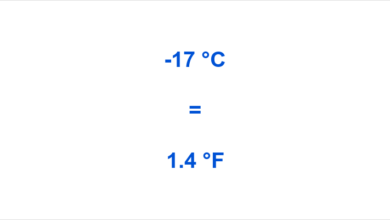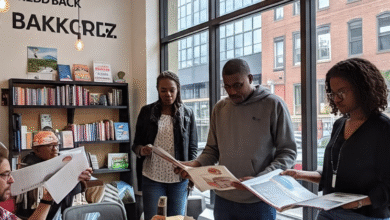Hiked up on caffeine nyt

Buzzing High: Caffeine’s Power & Pitfalls (NYT)
Caffeine. It’s the morning jolt in your coffee, the midday kick in your energy drink, and the sneaky boost in your favorite soda. For many, it’s a daily ritual, a way to shake off grogginess or power through a long day. But what does it mean to be “hiked up on caffeine,” as the New York Times has cleverly referenced in its crossword puzzles and articles? This phrase captures the electrifying, sometimes jittery state of being supercharged by caffeine—a feeling I know all too well from my college days cramming for exams with endless cups of coffee. In this article, we’ll dive into what caffeine does to your body and mind, its benefits, its risks, and how to use it wisely. Whether you’re a coffee enthusiast or an occasional energy drink sipper, here’s everything you need to know about riding the caffeine wave without crashing.
What Does “Hiked Up on Caffeine” Mean?
The phrase “hiked up on caffeine” paints a vivid picture of someone buzzing with energy, perhaps a little too much. It’s that wired, heart-racing sensation you get after one too many espressos. The New York Times used this phrase in its Mini Crossword on April 23, 2024, with the answer “WIRED,” perfectly capturing the heightened alertness caffeine brings. But beyond the crossword clue, the term reflects a universal experience: the surge of energy that can feel like a superpower—or a shaky, anxious overload.
I remember my first real encounter with being “hiked up on caffeine.” It was during a late-night study session in my sophomore year. I’d downed three cups of black coffee to finish a paper, and by 2 a.m., I was practically vibrating. My focus was razor-sharp, but my hands were trembling, and my thoughts were racing faster than I could type. That’s the double-edged sword of caffeine—it can make you feel invincible, but it can also leave you frazzled.
Caffeine is the world’s most widely consumed psychoactive substance, found in coffee, tea, energy drinks, chocolate, and even some medications. Its popularity comes from its ability to stimulate the central nervous system, making you feel more awake, focused, and ready to tackle the day. But as the New York Times has explored in various articles, caffeine’s effects are complex, offering both benefits and risks depending on how much you consume and how your body reacts.
How Caffeine Works Its Magic
To understand why caffeine makes us feel “hiked up,” let’s break it down. Caffeine works by blocking adenosine, a neurotransmitter that tells your brain it’s time to relax and sleep. When adenosine is blocked, your brain releases other chemicals like dopamine and norepinephrine, which increase alertness and boost your mood. This is why that first sip of coffee feels like a warm hug for your brain.
Studies, including those referenced in NYT articles, show that caffeine can enhance cognitive function, improve reaction times, and even lift your mood. For example, a study in The Archives of Internal Medicine found that moderate caffeine intake was linked to a lower risk of depression. I’ve felt this myself—on days when I’m dragging, a cup of tea can make the world seem a little brighter. But there’s a catch: too much caffeine can overstimulate your nervous system, triggering a “fight-or-flight” response that leaves you jittery or anxious.
Caffeine’s half-life—the time it takes for half of it to leave your system—is about five hours. This means if you have a latte at 3 p.m., some of that caffeine is still buzzing in your body at bedtime, potentially disrupting your sleep. I learned this the hard way when I started drinking energy drinks in the afternoon, only to lie awake at night, staring at the ceiling, wondering why I couldn’t relax.
The Benefits of Being “Hiked Up”
When used wisely, caffeine is like a trusty sidekick. Here’s how it can supercharge your day:
1. Boosts Physical Performance
Athletes and fitness buffs have long relied on caffeine to push their limits. Research, like that cited in The Irish Times and echoed by NYT sources, shows caffeine can improve endurance, reduce how hard exercise feels, and even enhance muscle contractions. Whether you’re hitting the gym or going for a run, a pre-workout coffee can make you feel like you’re flying. I’ve noticed this myself during morning jogs—a small cup of coffee beforehand, and I’m suddenly setting personal bests without feeling like I’m dying.
2. Sharpens Mental Focus
Caffeine’s ability to enhance concentration is a game-changer for students, professionals, or anyone tackling a big project. It’s no wonder coffee shops are packed with laptops. A New York Times article highlighted how caffeine can help you stay focused for long periods, which is why I always keep a thermos of tea nearby when I’m working on a deadline. It’s like a mental spotlight, helping you zero in on the task at hand.
3. May Protect Your Brain
Some studies suggest that regular caffeine consumption could lower the risk of neurodegenerative diseases like Alzheimer’s and Parkinson’s. By protecting brain cells and boosting dopamine, caffeine might keep your mind sharp as you age. While I’m no neuroscientist, the idea that my daily coffee habit could be a long-term investment in my brain health is pretty reassuring.
4. Mood Booster
Ever notice how a cup of coffee makes you feel a little happier? That’s not just the cozy ritual—it’s the dopamine. Caffeine increases dopamine production, which can elevate your mood and even reduce the risk of depression when consumed in moderation. I’ve had days where a quick coffee break turned my frown upside down, and science backs up that feel-good vibe.
The Downside of Too Much Caffeine
But here’s where the “hiked up” feeling can take a turn. Too much caffeine can push you past energized and straight into overdrive. Here are the pitfalls to watch out for:
1. Anxiety and Jitters
Caffeine stimulates your sympathetic nervous system, which can trigger a fight-or-flight response. This is great if you’re running from a bear, but not so great when you’re sitting at your desk, heart pounding, feeling like the world’s about to end. A DNyuz report, referenced in NYT discussions, notes that excessive caffeine can cause restlessness, a racing heart, or even panic attacks in sensitive individuals. I’ve been there—after one too many energy drinks, I felt like I was auditioning for a role as a human earthquake.
2. Sleep Disruption
As someone who’s struggled with insomnia, I can attest that caffeine and sleep don’t always play nice. Because of its long half-life, caffeine consumed later in the day can make it hard to fall asleep or stay asleep. Poor sleep, in turn, messes with your focus, mood, and overall health. The New York Times has covered how caffeine’s lingering effects can sabotage your sleep cycle, and I’ve learned to cut off my caffeine intake by noon to avoid those restless nights.
3. Dependency and Tolerance
Your body can get used to caffeine, meaning you need more to get the same buzz. This can lead to dependency, where you feel sluggish without your daily dose. I’ve had weeks where I realized I wasn’t drinking coffee for the taste—I needed it to function. Breaking that cycle took effort, but cutting back made me feel more in control.
4. Health Risks of Overconsumption
Highly caffeinated drinks, like those implicated in lawsuits against Panera Bread’s Charged Lemonade (covered by the NYT), highlight the dangers of going overboard. These drinks, packed with as much caffeine as multiple energy drinks, have been linked to serious health issues, including heart problems in extreme cases. Moderation is key—too much caffeine can strain your heart, raise blood pressure, or cause digestive issues.
Finding the Sweet Spot: How to Use Caffeine Wisely
So, how do you enjoy caffeine’s perks without the pitfalls? Here are some tips I’ve picked up from trial, error, and a bit of research:
-
Know Your Limit: The FDA suggests 400 mg of caffeine per day as a safe limit for most adults (about four cups of coffee). But everyone’s different—I’m fine with two cups, but three sends me into jittery territory. Listen to your body.
-
Time It Right: Avoid caffeine after 2 p.m. to protect your sleep. If you need a late-day boost, try a walk or a quick stretch instead.
-
Mix It Up: Not all caffeine sources are equal. Coffee and tea are gentler than energy drinks, which often come with added sugars and chemicals. I stick to black coffee or green tea for a cleaner buzz.
-
Take Breaks: Occasionally skip caffeine to reset your tolerance. I take a “caffeine holiday” every few months, switching to herbal tea for a week. It’s tough at first, but it makes my next coffee feel like magic again.
-
Stay Hydrated: Caffeine is a diuretic, meaning it can dehydrate you. Pair your coffee with a glass of water to stay balanced.
My Personal Caffeine Journey
I’ve been a caffeine fan since high school, when I discovered that a mocha could make early-morning classes bearable. Over the years, I’ve experimented with everything from artisanal pour-overs to gas station energy drinks. Each phase taught me something about how caffeine affects me. In my 20s, I leaned hard on Red Bull to power through long workdays, only to crash hard by evening. Now, I’m more intentional—savoring a single espresso in the morning and maybe a green tea in the afternoon. It’s less about chasing a buzz and more about enjoying the ritual.
One thing I’ve learned is that caffeine isn’t a one-size-fits-all deal. My friend Sarah can chug a double espresso at 8 p.m. and sleep like a baby, while I’m wired until midnight if I have coffee past noon. It’s all about knowing your body and setting boundaries. The New York Times has pointed out this individuality in its coverage, emphasizing that caffeine sensitivity varies based on genetics, age, and even stress levels.
Caffeine in Culture: Why We’re Obsessed
Caffeine isn’t just a chemical—it’s a cultural cornerstone. From coffeehouses fueling intellectual debates in the 18th century (as explored in a 2011 NYT article) to today’s Instagram-worthy latte art, caffeine shapes how we work, socialize, and unwind. The New York Times has chronicled this obsession, from the rise of specialty coffee to the controversies over high-caffeine energy drinks. It’s no surprise that a phrase like “hiked up on caffeine” resonates—it’s a nod to our collective love affair with that energizing buzz.
I see this in my own life. Coffee shops are my go-to for catching up with friends or getting lost in a good book. There’s something about the hum of conversation, the clink of cups, and the aroma of fresh coffee that makes the experience more than just a caffeine hit. It’s a ritual, a moment to pause in a hectic world.
The Future of Caffeine: Trends to Watch
Caffeine’s role is evolving. The NYT has reported on trends like low-calorie, sugar-free energy drinks marketed as “healthy” alternatives, despite their high caffeine content. There’s also a growing interest in natural sources like matcha and yerba mate, which offer a smoother buzz. I’ve recently started experimenting with matcha, and I love how it gives me steady energy without the crash I get from coffee.
On the flip side, concerns about overconsumption are rising. The New York Times covered the backlash against super-charged drinks like Panera’s Charged Lemonade, which sparked lawsuits over health risks. As consumers, we’re becoming more aware of what we’re putting in our bodies, and that’s pushing brands to be transparent about caffeine content.
Wrapping Up: Ride the Wave, Don’t Wipe Out
Being “hiked up on caffeine” is a thrill—a burst of energy that can make you feel unstoppable. But like any thrill, it comes with risks. By understanding how caffeine works, respecting your limits, and savoring it mindfully, you can enjoy its benefits without the downsides. Whether you’re solving an NYT crossword clue or just trying to survive a Monday, caffeine can be your ally if you use it wisely.
For me, caffeine is more than a pick-me-up—it’s a small joy in my day, a moment to savor a warm mug and gather my thoughts. So, next time you’re reaching for that coffee or energy drink, think about what “hiked up” means for you. Are you chasing a productive buzz or teetering on the edge of a jittery crash? Find your balance, and let caffeine lift you up without sending you over the edge.



